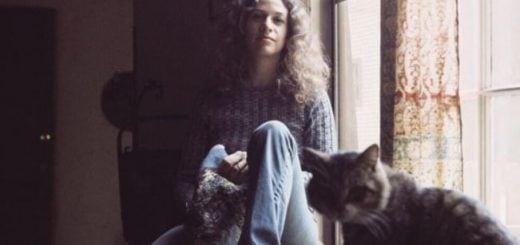“Where You Lead” by Carole King
To modern female audiences, even a 21st century Carole King, the song “Where You Lead” may read as being overly-dopey in its approach. Here, we have the singer expressing her willingness to follow her lover ‘wherever he leads’. This includes her being willing to travel to meet him at a moment’s notice and even put her own residential fantasies aside in the name of being with him. But overall the goal is not for the vocalist to present herself as some kind of tool. Rather, simply put, she is madly in love. That is to say, as revealed in the first verse, that her relationship with the addressee has had a profound effect on her. So in all, “Where You Lead” serves as an expression of her unwavering, self-sacrificing dedication to him.

Did Carole King write “Where You Lead”?
Yes, she did. This is a song which Carole King wrote alongside a steady writing partner at the time, Toni Stern.
Release
It was never released as a single by King but still proved to be a notable track nonetheless, originally coming out as part of her ground-breaking Tapestry album.
This track was later featured on Barbra Joan Streisand, Barbra Streisand’s 1971 album which contained a few covers of Tapestry songs. Streisand’s rendition was released as an advance single from that project. And it went on to break the top 40 of the Billboard Hot 100.
“Where You Lead” was originally released, as part of Tapestry, on 10 February 1971. It’s important that we mention that Carole’s Tapestry project is considered one of the best albums ever made. Actually in 2020, Rolling Stone placed it at number 25 on its compilation of the greatest 500 albums ever made.
Appearance on “Gilmore Girls”
It has become more known to 21st century audiences due to acting as the theme song for the well-received television series Gilmore Girls (2000-2007). However, in said case the lyrics were modified from the original to reflect a mother/daughter relationship as opposed to a romantic one. Additionally since Gilmore Girls itself is mainly about the relationship between a mother and daughter, that time around Carole King decided to record it as a duet alongside her own child, Louise Goffin, who is also a professional musician. And for those who are interested, that rendition can be found on the album “Our Little Corner of the World: Music from Gilmore Girls” (2002).
Also interesting to point out is that the producer of the Gilmore Girls’ version of this song is Greg Wells, who at the time was married to Louise Goffin. Furthermore, it should be noted that Carole King herself made a few appearances on Gilmore Girls portraying the role of Sophie Bloom, a record store owner.
Not a favorite of Carole King
Louise Goffin once stated that, in regards to the original lyrics of this track, “Where You Lead” had fallen out of favor with Carole King. And the reason being is that “she didn’t feel like it was an empowering song”. And why? This is due to the ‘stand by your man’ motif. And as King went on to further elaborate the early-1970s, around the time after Tapestry came out, also marked an era in which “we women decided… we didn’t… need to follow our men anymore”.
Inspiration
And here’s another notable tidbit – this song was actually inspired by a passage from the Book of Ruth. Said verse reads, in part, “where you go, I will go” and was uttered by the titular figure herself. However, she was not making this statement towards a lover. Rather she was addressing her mother-in-law. So ultimately, the Gilmore Girls’ version of “Where You Lead” is more true to the song’s initial inspiration than the original.
Notable Covers of “Where You Lead”
Meanwhile on the tribute album “Tapestry Revisited: A Tribute to Carole King” (1995), Where You Lead is sung by another powerful songstress, Faith Hill.
The aforementioned tribute album also featured Celine Dion who covered Carole King’s classic “(You Make Me Feel Like) A Natural Woman”. The Bee Gees also covered another classic by her titled “Will You Love Me Tomorrow”. Other notable singers that featured on the album include Rod Stewart, Amy Grant, Cece Winans, Richard Marx and Aretha Franklin.
Who produced this song?
Lou Alder, the musician who served a similar role throughout Tapestry, produced “Where You Lead”.
What genre is this Carole King classic?
It can easily be categorized into the ‘Easy Listening’ genre of music.








